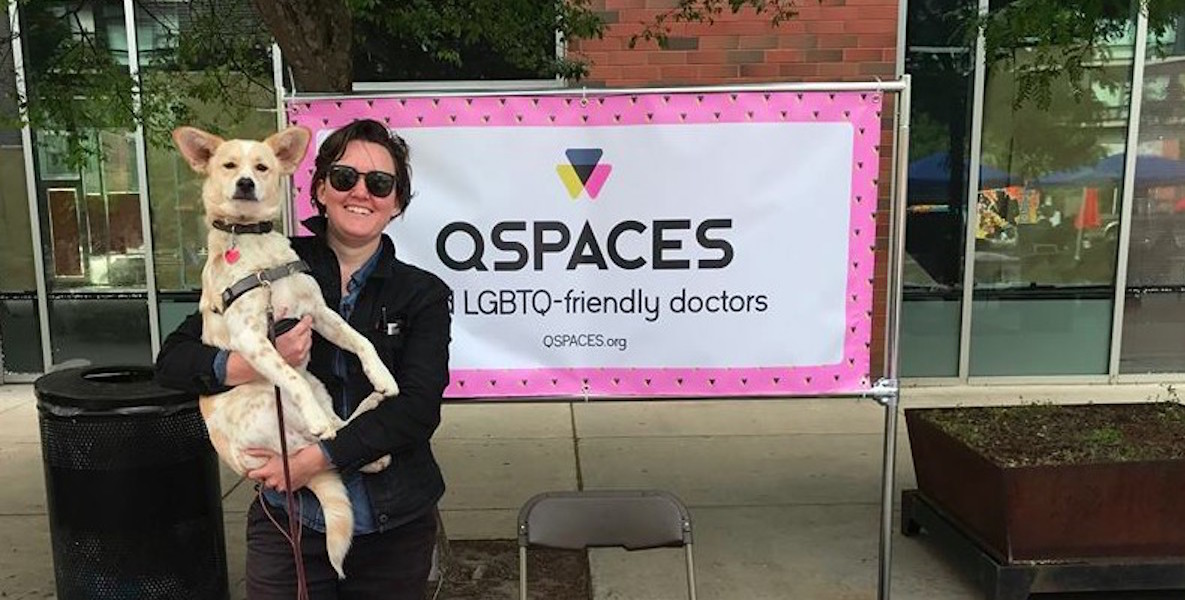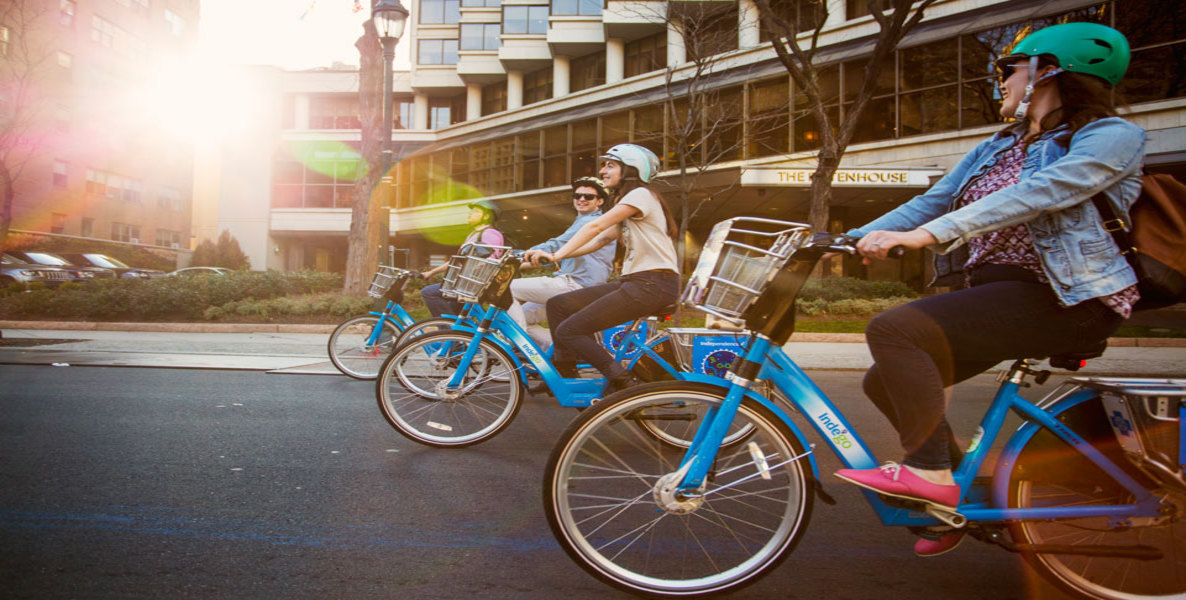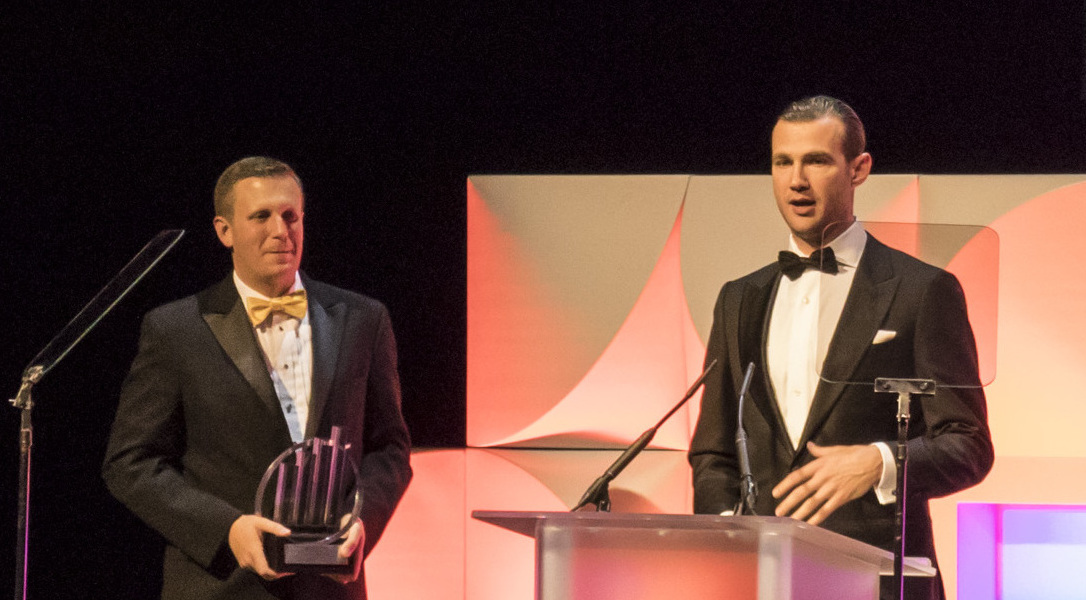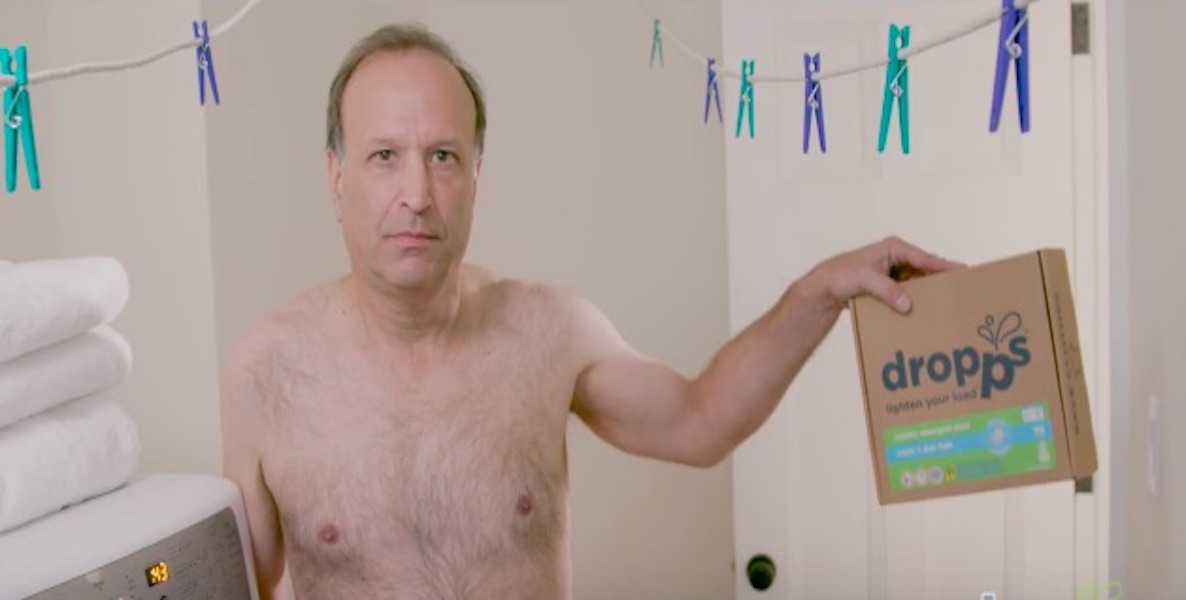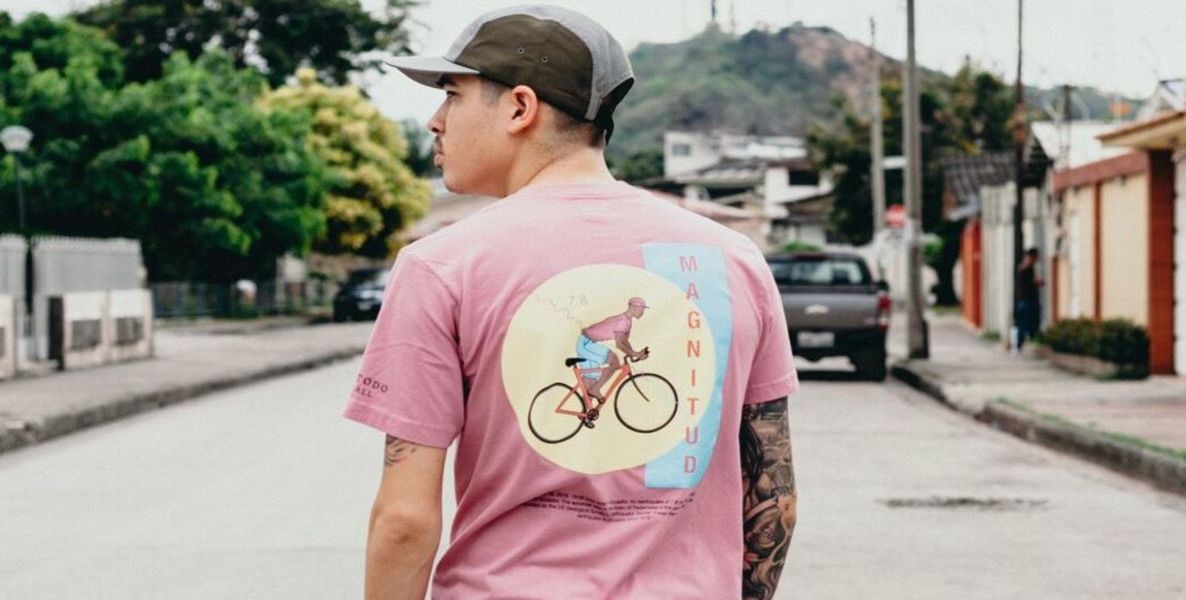As a college student studying criminal justice at Temple University, Francis Young assumed he would follow in the path of his parents and sister, all of whom are former or current police officers. Helping people was in his blood, after all.
But a trip to Costa Rica for a study abroad program his junior year changed Young. In the month he was down there, he met all sorts of people who were doing what they want to do, not what was expected. He realized it was okay to follow his true passion, fashion—so long as he also found a way to do good in the world. “I always loved fashion, but I felt like it was my thing, like I wasn’t helping anybody by doing it,” Young says.
That’s when Young came up with a way to do both. Last year he launched Paratodo, a casual menswear clothing brand that is locally-made and that each season donates 25 percent of its proceeds to a local or national nonprofit. The company’s name says it all: From the Spanish phrase para todos, meaning “for all” or “for everyone.”
So far, Paratodo has donated $2,000 to local animal welfare organization PAWS—some of which came from PAWS-inspired hoodies. Young says it’s on target to give more than that this fall to Waves For Water, a non-profit that delivers portable water filters in areas across the world where access to clean water is sorely needed. His clothes have sold online as far away as Scandinavia and Germany, and in person at Brooklyn menswear shop The Hill-Side, Phillys P’s and Q’s (where Young also works) and at upscale athletic wear store Lululemon’s Fishtown shop, The Local.
“People are really connecting to the styling of his clothes, and the simplicity of it,” says the Local’s curator and manager Alyssa Horn. “His stuff is something that will take you further than this season, which is what we want to make sure we’re really highlighting, stuff we’re sure will last.”
Paratodo is still nascent, and fashion can be a cruel industry. But for now, Young is flipping the idea of fashion as vapid and unnecessary on its head—from the way he makes the clothes to how he spends his profits. As such, the company is part of a trend—led by young entrepreneurs—of putting people, planet and profits on an even playing field.
To Young, it’s just natural. As he puts it, neither philanthropy nor fashion begot the other. “It’s not half philanthropy and half fashion,” he says. “It’s one hundred percent both.”
“I could’ve followed through with just becoming a cop and getting paid $50,000 a year, full-time benefits,” Young says. “But I wouldn’t find the enjoyment that I do when I’m designing or telling the story about the organizations that we work with. That’s something that a college degree and a pension plan can’t buy you.”
Young designs most of the clothes himself, so far creating four collections of streetwear, menswear, and experimental clothing. Among other pieces, the line includes twill cotton button-down shirts, intricate mesh and cotton ripstop windbreakers, and graphic t-shirts with designs inspired by Paratodo’s charity partners.
Getting a little help through small loans from his sister and his late grandmother, Young mostly funded the startup with money he’d saved from working full-time at a Chinatown gas station since he was 18—money that had been intended to pay back his student loans. “It’s definitely not the smartest idea,” Young laughs. “But it means more to me to try to give this a chance, than it did to just pay back my loans. I have another 15 years to do that.”
Overwhelmed by the number of causes he wanted to help, Young decided to switch it up each season, giving to one local and one more far-flung charity each year. In a flurry of unfortunate events leading up to Paratodo’s conception, Young was bitten by a stray dog while in Costa Rica, and found out his first adopted dog had bone cancer and would have to be put down. It seemed like helpless animals were everywhere.
So for that first autumn collection, and the winter collection that would follow, Paratodo’s 25 percent donation went to PAWS, the city’s largest no-kill animal shelter. Paratodo’s philanthropic efforts come at the end of each season, when the company makes its donation to their charity partner. This spring, Young went to Ecuador with a few friends and volunteers to deliver a set of “pilot” filters for Waves for Water, which he plans to do again at the end of the season with Paratodo’s donation.
But the “for all” aspect of Paratodo is incorporated long before those donations are made. Paratodo produces the majority of its goods within the United States, and even better, mostly within Philly. All of its printed items—think graphic tees and sweatshirts—are manufactured here in the city, while its cut-and-sew pieces are made in North Jersey.
“It really wouldn’t make sense for us to make a product to donate to a charity, but have it come from forced labor or some other type of harsh conditions,” Young says. “To me, it would be false.”
Paratodo isn’t the only company to prioritize American manufacturing, but it’s certainly one of the relatively few. According to the U.S. Bureau of Labor Statistics, U.S. jobs in Apparel Manufacturing have dropped from 217,900 in 1997 to 122,800 in 2017.
Young is flipping the idea of fashion as vapid and unnecessary on its head—from the way he makes the clothes to how he spends his profits. As such, the company is part of a trend—led by young entrepreneurs—of putting people, planet and profits on an even playing field. “It’s not half philanthropy and half fashion,” he says. “It’s one hundred percent both.”
Offshoring allows companies access to cheaper labor, but it can also put them in hot water with consumers concerned with fair labor practices. In a recent investigation into Ivanka Trump’s clothing line, The Washington Post observed that the American apparel industry has been focused less on moving manufacturing back to the states, and more on reassuring American consumers that the workers who make their clothes are being treated fairly.
The Post reports that American companies of all sizes, including Adidas and Kenneth Cole, are hiring independent auditors to monitor and encourage improvements to conditions in their overseas factories. (The article also notes, however, that Ivanka Trump’s company has yet to fully embrace that kind of hands-on approach.)
Young, on the other hand, emphasizes the benefits of keeping manufacturing as hands-on and local as possible. Young meets with his manufacturer nearly every other week to go over edits.
“If something doesn’t work out, say something is cut wrong, you want to be able to nip that in the bud instead of having to wait three, four weeks for them to ship it from overseas,” he says.
For now, some products, like hats and water bottles, are still made overseas because it is not cost-effective to make them here, given how few Young manufactures at a time—though the bottles are made by MiiR, a certified B Corp, and the hats are by a certified fair trade company.
Young couldn’t give total sales, but says some of his designs are close to selling out. So far, Paratodo is primarily a one-man operation, with a few interns and volunteers. He hopes to hire a few employees in the next year, which would allow him to focus on design and working with charities—his strong suits. A stand-alone retail shop is a more distant goal.
So far, Paratodo has donated $2,000 to local animal welfare organization PAWS. Young says it’s on target to give more than that this fall to Waves For Water, a non-profit that delivers portable water filters in areas across the world where access to clean water is sorely needed.
Meanwhile, Young is focused on expanding his list of retailers—like Lululemon’s The Local, where he’ll be holding a pop-up store on August 4th, and other national retailers. Young’s priority, however, will always be selling the clothes out of Philly’s own P’s & Q’s. “My biggest thing is Philly,” he says. “That’s where I’m from, that’s where the company is based, that’s kind of where the heart is.”
Though Young admits he can’t predict how far Paratodo will go, he’s ardently chasing whatever big step that will allow him to follow his dual passions for as long as he can.
“I had every reason not to do this, I could’ve followed through with just becoming a cop and getting paid $50,000 a year, full-time benefits,” Young says. “But it wouldn’t have been what I wanted to do. It wouldn’t have been what I love to do, and I wouldn’t find the enjoyment that I do when I’m designing or telling the story about the organizations that we work with. That’s something that a college degree and a pension plan can’t buy you.”
Header Photo: Saeed Ferguson


